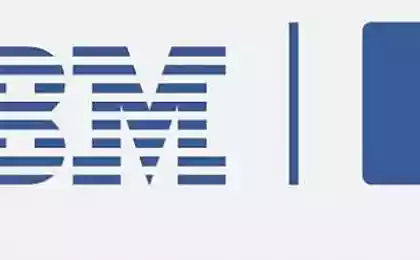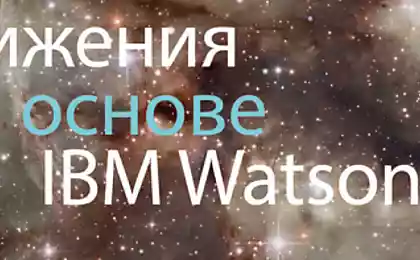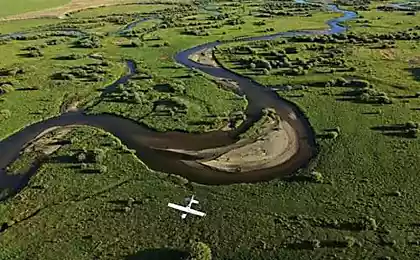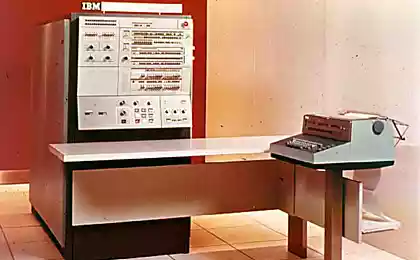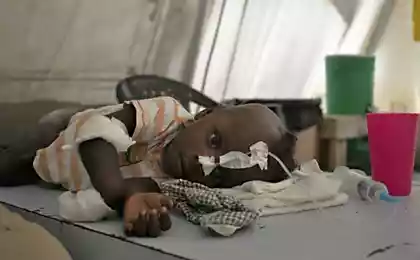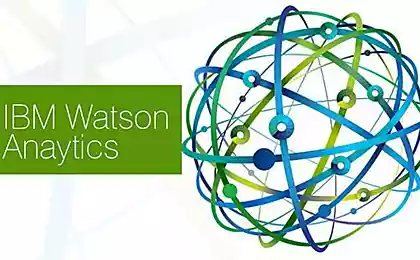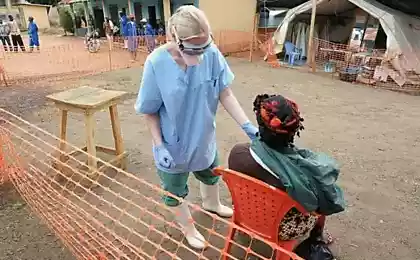1540
IBM launches humanitarian initiatives to combat Ebola
3D model of Ebola virus i>
IBM has announced the launch of humanitarian initiatives designed to help combat the spread of Ebola fever in West Africa. As part of the program of assistance to the affected countries, IBM is introducing a system of analysts in Sierra Leone, which helps citizens to report cases of diseases as well as receive advice on issues of concern. In addition, IBM provides a platform IBM Connections, which will help the Government of Nigeria to prepare for possible outbreaks of the disease in the future, as well as a global platform where you can share open data Ebola virus.
These initiatives bring together the expertise of the global network of research laboratories with IBM long practice in the field of elimination of the consequences of humanitarian disasters in using mobile technology, data analytics and cloud computing. IBM initiative to help governmental agencies and humanitarian organizations in the fight against deadly diseases.
IBM is implementing initiatives in conjunction with the Open Government of Sierra Leone, Cambridge University project Africa's Voice, and in cooperation with partner companies Airtel and Echo Mobile.
System analysts in Sierra Leone
New IBM research laboratory in Africa in collaboration with the Government of Sierra Leone has developed a system that allows citizens to report cases of the disease through telephone or SMS-consultations. The system provides management with important information about the country's sentiments among the population in order to help improve the strategy against the disease.
"In the current situation it is crucial to maintain an open dialogue between the government and citizens of Sierra Leone - commented Khadija Sesay (Khadija Sesay), head of the project" Open Government "Sierra Leone. - IBM is helping to improve outreach through innovative technologies that allow to establish effective channels of communication. Thanks to this we can analyze incoming information and take appropriate action to combat the virus ».
Combining the capabilities of supercomputers and analytical tools in a cloud environment, the system can quickly determine the logical relationships and priorities, based on the messages received from the citizens. Since voice and SMS-data attached to the location of the user, system, IBM can create intensity maps that relate the incoming information with location-based data.
For example, the system has helped to identify some areas of the country with a growing number of suspected Ebola, which require urgent humanitarian intervention, namely the supply of cleaning and disinfecting agents and sources of electricity, as well as the burial of victims of the virus. Moreover, the system helps to identify the cases where diagnosis of the disease is difficult. Thus, based on the received information the government may appeal to the international community to provide the necessary resources for testing and equipment.
"Being the first technology lab in Africa, we use our unique position by directing innovation for the benefit of solving the most serious problems of the continent, - said Dr. Stuart uyi (Uyi Stewart), chief researcher IBM Research Africa. - We realized that there was a need for such a system that would help citizens to influence the efficiency of combating the virus. Using mobile technology, we gave them the opportunity to share personal experiences directly to the representatives of the government of the country ».
The system also uses radio to support the people and inspire them to something to share views. Project staff at Cambridge University Africa's Voices helped develop a model of citizen engagement that uses public announcements in order to obtain feedback from the citizens of the country, both in English and Krio - one of the main languages spoken in Sierra Leone.
"Radio - a powerful tool of communication in Africa, but its capacity to collect and analyze feedback for the most part have not implemented - commented Dr Sharath Srinivasan (Sharath Srinivasan), director of the Center for Management and Human Rights at the University of Cambridge. - In collaboration with IBM, we offer the citizens of Sierra Leone the opportunity to express their opinion. This channel of communication, in turn, allows you to quickly analyze the data and evaluate the effectiveness of public service announcements, as well as work on a possible misunderstanding of the Ebola virus population ».
Cellular operator Airtel has commissioned a hotline that people can use to send free SMS-messages.
"Mobile technologies provide a powerful communication platform - said Sudipto Chowdhury (Sudipto Chowdhury), Managing Director of Airtel Sierra Leone. - As one of the largest mobile operators in Africa, we are doing everything in our power to counteract the spread of Ebola using mobile technology. Our partnership with IBM is designed to improve the efficiency of information exchange between the citizens of the country and its leadership ».
For SMS-anonymized data meets Kenyan startup Echo Mobile, which specializes in providing mobile voice in underdeveloped countries.
"We tried to make the flow of messages from patients, health workers and ordinary citizens useful for further disease control, able to provide a more detailed picture of the current situation", - said Jeremy Gordon, Director of Product Development, Echo Mobile.
IBM now seeks to analyze data from the mobile phone signals, in order to monitor and track the natural movement of the population, which, in turn, will help scientists predict the spread of the virus.
The technology that facilitates coordination
Nigeria took the lead in the fight against a deadly disease, and not so long ago was declared a territory, free from fever. To prepare the country for possible outbreaks of the virus in the future, IBM at no cost to the Government of Nigeria has provided technology Connections.
The Nigerian government launched Operation Centre, which is responsible for coordinating efforts to combat Ebola on behalf of the state and other organizations. IBM technology will help improve the efficiency and coordination of operational groups to raise the level of preparedness of the government for possible outbreaks of the disease in the future.
Technology IBM Connections has a proven track record in addressing the humanitarian catastrophes. It provides healthcare workers reliable and secure digital collaboration platform, allowing to share documents and videos, send text and voice messages, update relevant information and access it through mobile devices, and conduct virtual meetings. Furthermore, the technology offers the possibility of safe and easy storage of data in the cloud, providing thus a function of access to information for authorized users from anywhere.
Previously IBM at no charge provided the technology and in other crisis situations around the world to support the cooperation between agencies to assist victims. So, in 2010, IBM SmartCloud cloud solutions have helped doctors busy aftermath of the earthquake in Haiti. The Chilean Red Cross used the platform to deploy a command center for managing the consequences of the earthquake in 2010. The same platform was later engaged by the US government in the aftermath of Hurricane Sandy in 2012 and the flood in Colorado in 2013. Today, IBM offers access to the cloud platform, IBM Connections all governmental organizations engaged in the fight against Ebola.
Open repository of data on the Ebola virus
Volunteers IBM launched a global social initiative to help identify and classify all open sources of data related to the outbreak of Ebola, and encourage organizations from around the world to contribute to the collection of important information.
IBM volunteers also helped to organize a seminar Ebola Open Data in New York, where representatives of the local technology community met with health care experts to discuss the creation of appropriate solutions to combat Ebola.
Source: habrahabr.ru/company/ibm/blog/242155/



